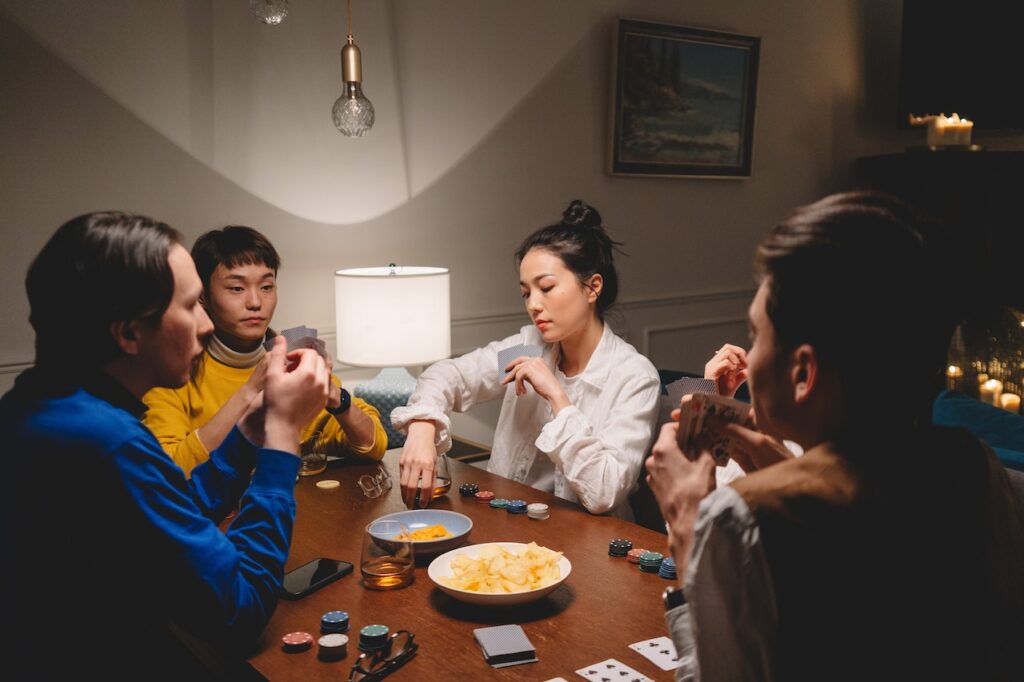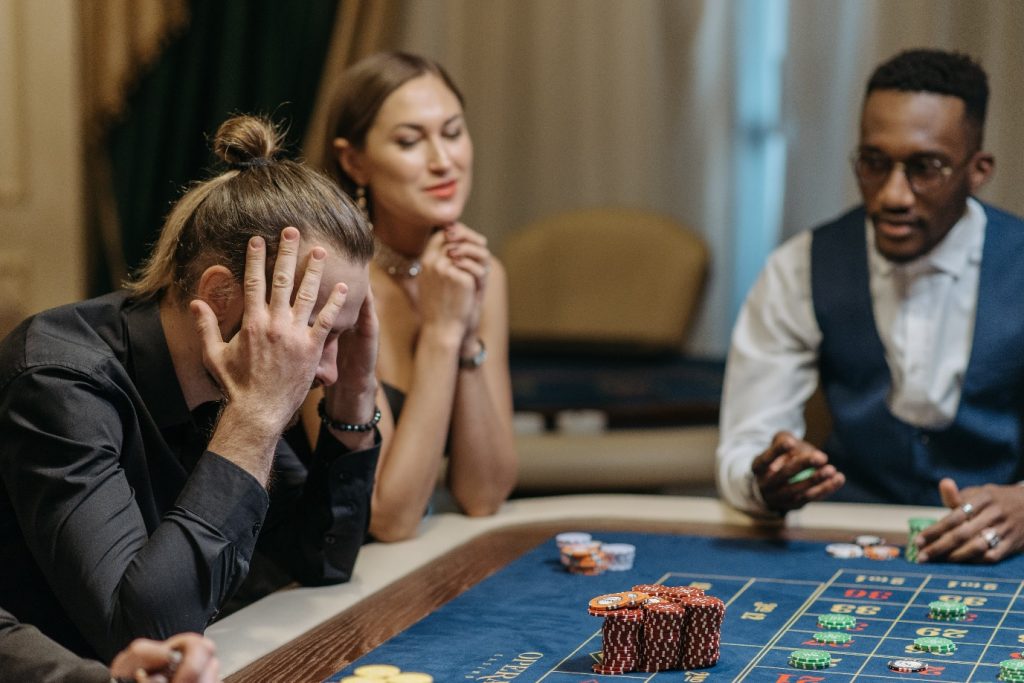Incorporating Psychology into Your Poker Game: Tips for Exploiting Mental Edge

1. Understanding the Psychological Aspect of Poker
1.1 The Role of Psychology in Poker
1.2 The Impact of Psychological Factors on Decision Making
Poker is not merely a game of cards; it is a battleground where players must not only rely on skill and strategy but also understand the intricate world of psychology. Incorporating psychology into your poker game can give you a significant advantage over your opponents by allowing you to exploit their mental vulnerabilities. In this article, we will delve into the psychological aspect of poker, exploring how understanding and utilizing psychology can enhance your gameplay. We will explore the role psychology plays in poker, its impact on decision-making, and equip you with tips and techniques to gain a mental edge at the poker table. By harnessing the power of psychology, you can become a more formidable player and increase your chances of success in the game.
1. Understanding the Psychological Aspect of Poker
1.1 The Role of Psychology in Poker
When it comes to poker, it’s not just about the cards you’re dealt or the mathematical odds. Psychology plays a crucial role in the game. Understanding the psychological aspect of poker means recognizing that your opponents are not just robots making logical decisions; they are emotional beings prone to making irrational moves. Exploiting these emotions can give you a significant edge at the table.
1.2 The Impact of Psychological Factors on Decision Making
Psychological factors greatly influence decision making in poker. Emotions like fear, greed, and frustration can cloud judgment, leading players to make poor choices. On the flip side, understanding your opponents’ psychological tendencies can help you read their hands, anticipate their moves, and make smarter decisions. By studying the impact of psychological factors on decision making, you can gain an advantage over your opponents.
2. Developing Mental Resilience and Focus
2.1 Importance of Mental Resilience in Poker
Poker can be a rollercoaster of emotions, with wins and losses coming in unpredictable waves. That’s why mental resilience is crucial for success. It’s about staying focused and composed even in the face of adversity. Developing mental resilience will help you handle bad beats, recover from losses, and make rational decisions instead of getting caught up in emotional turmoil.
2.2 Techniques for Improving Mental Focus
Improving mental focus is a game-changer in poker. One technique is mindfulness, where you train your mind to stay present and focused on the current hand. Deep breathing exercises are another helpful tool to calm your nerves and clear your mind. Additionally, taking regular breaks during long sessions and finding ways to relax and recharge can help maintain your mental stamina and concentration.
3. Reading and Exploiting Opponents’ Psychological Patterns
3.1 Observing and Analyzing Behavioral Patterns
To gain a mental edge in poker, you need to become a master observer. Pay attention to your opponents’ body language, betting patterns, and overall behavior. Are they bluffing when they fidget or leaning back when they have a strong hand? By observing and analyzing these behavioral patterns, you can start to build a profile of each player and use it to your advantage.
3.2 Exploiting Psychological Weaknesses of Opponents
Once you’ve identified your opponents’ psychological patterns, it’s time to exploit their weaknesses. If you notice someone getting angry after a loss, consider pushing their buttons to provoke a reaction that affects their decision making. If another player is prone to making impulsive calls, use that to your advantage by making big bets when you have a strong hand. Exploiting psychological weaknesses is like playing a mind game within the game itself.
4. Managing Emotions and Controlling Impulsive Actions
4.1 Recognizing and Managing Tilt
Tilt is the bane of every poker player’s existence. It refers to a state of emotional and mental distress that leads to irrational decisions. Recognizing when you’re on tilt is crucial for managing it effectively. Take a break, regroup, and refocus your mind. Remember that poker is a long-term game, and individual losses are just bumps along the way.
4.2 Strategies for Controlling Impulsive Reactions
Controlling impulsive reactions is essential for maintaining a steady and strategic approach to poker. One strategy is to create a pre-determined plan or set of rules for your actions in different situations. This helps prevent impulsive decisions based on fleeting emotions. Additionally, practicing discipline and self-control will allow you to make rational choices rather than succumbing to impulsive urges.
Incorporating psychology into your poker game can give you that mental edge necessary for success. By understanding the psychological aspect of poker, developing mental resilience and focus, reading and exploiting opponents’ psychological patterns, and managing emotions and impulsive actions, you can elevate your game to new heights. So, use your psychological prowess wisely and let the mind games begin!
5. Utilizing Psychological Tactics for Strategic Decision Making
5.1 Applying Bluffing and Misdirection Techniques
When it comes to poker, one of the most powerful psychological tools at your disposal is bluffing. By intentionally misleading your opponents about the strength of your hand, you can force them to make poor decisions and ultimately take advantage of their fear and uncertainty. Just like a magician pulling off an elaborate trick, bluffing requires carefully choreographed moves and a poker face that could rival Lady Gaga’s. Remember, a well-executed bluff can make even the most timid player fold like a cheap lawn chair.
5.2 Using Reverse Psychology to Manipulate Opponents
Ever heard the saying, “the best way to win a game of poker is to convince your opponents they’re already beaten”? Well, it turns out there’s some truth to it. Reverse psychology involves strategically planting seeds of doubt and insecurity in your opponents’ minds. By making them believe they have the upper hand when they actually don’t, you can lead them down a path of self-destruction. It’s like convincing someone to eat a salad by telling them it’s a sinful indulgence. Just be careful not to overuse this tactic, or you might find yourself playing mind games with an empty wallet.
6. Enhancing Intuition and Trusting Gut Instincts
6.1 Developing Intuition through Experience and Observation
In poker, intuition is your secret weapon. It’s that gut feeling that tells you to fold when everything looks great on paper, or to go all-in when the odds seem stacked against you. Cultivating intuition requires years of experience and keen observation skills. Pay attention to your opponents’ body language, betting patterns, and any subtle cues they may unknowingly reveal. The more you play, the more your instincts will sharpen and guide you towards the right decisions. So, trust your gut, even if it sometimes feels like your gut has no idea what it’s doing.
6.2 Balancing Intuition with Rational Analysis
While intuition can be a powerful force, it shouldn’t be the sole driver of your decision-making process. It’s important to strike a balance between trusting your gut and engaging in rational analysis. Take into account the probability of certain hands, the size of the pot, and the potential risks and rewards of your choices. Allow your intuition to guide you, but use your logical mind to prevent impulsive and reckless decisions. Remember, poker is a game of skill and strategy, not just luck and wild guesses. Unless you’re playing blindfolded, in which case, good luck!
7. Practicing Mindfulness and Maintaining a Balanced Mindset
7.1 Benefits of Mindfulness in Poker
In the chaotic world of poker, maintaining a calm and focused mind can give you a significant advantage. Mindfulness, the practice of being fully present and aware of your thoughts and emotions, can help you make clearer decisions, stay in control of your reactions, and manage stress effectively. By staying grounded in the present moment, you can better read your opponents and make more strategic moves. So, instead of getting lost in thoughts about what you’re going to have for dinner, be fully present in the game and give it your full attention. Your stomach can wait.
7.2 Techniques for Maintaining a Calm and Balanced Mind
When the pressure is on and the stakes are high, it’s easy to let your emotions run wild like a pack of wild dogs chasing a squirrel. But in poker, maintaining a calm and balanced mindset is crucial. Take deep breaths, practice visualization techniques, and remind yourself that it’s just a game. Don’t let frustration or anger cloud your judgment. If you find yourself getting steamed like a basket of dim sum, take a break, go for a walk, or scream into a pillow – whatever helps you release the tension. Remember, poker is as much a mental game as it is a card game. So, keep calm and carry on (but not with the cards, that’s cheating).
8. Leveraging Psychological Advantages for Long-Term Success
8.1 Building a Psychological Edge Over Time
Psychological advantages in poker are not built overnight, unless you have a time machine, in which case, let’s talk about more important things, like which lottery numbers to pick. Building a psychological edge takes time, practice, and a dedication to learning from your mistakes. Study your opponents, experiment with different strategies, and analyze your own gameplay. The more you understand the human psyche and how it influences decision-making, the better equipped you’ll be to exploit those weaknesses. So, keep grinding, keep evolving, and keep refining your psychological arsenal.
8.2 Maximizing Long-Term Success through Psychological Tactics
Psychological tactics in poker shouldn’t be seen as quick fixes or shortcuts to success. Instead, they should be viewed as tools that can enhance your overall strategy and give you an edge over the competition. Use these tactics strategically, knowing when to bluff, when to manipulate, and when to trust your instincts. But remember, the game of poker is complex, and relying solely on psychological tricks won’t guarantee victory. It’s about finding the right balance between psychological warfare and solid gameplay. So, embrace your inner psychologist, but don’t forget to bring your A-game to the table.Incorporating psychology into your poker game can be a game-changer. By understanding the psychological aspect of poker, developing mental resilience, reading and exploiting opponents’ psychological patterns, managing emotions, utilizing psychological tactics, enhancing intuition, practicing mindfulness, and leveraging psychological advantages, you can elevate your poker skills to new heights. Remember, poker is not just about the cards; it’s about understanding the minds of your opponents. By implementing the tips and strategies outlined in this article, you can gain a mental edge and set yourself up for long-term success at the poker table. So, embrace the power of psychology and watch your game reach new levels of excellence.
FAQ
1. How important is psychology in poker?
Psychology plays a crucial role in poker. While skill and strategy are important, understanding the psychological aspect of the game can give you a significant advantage. By being able to read and exploit opponents’ psychological patterns, manage your own emotions, and make strategic decisions based on psychological tactics, you can gain a mental edge over your opponents and improve your chances of winning.
2. Can anyone incorporate psychology into their poker game?
Yes, anyone can incorporate psychology into their poker game. While some individuals may have a natural knack for reading people and understanding psychological cues, others can develop these skills through practice and observation. By studying and implementing the tips and techniques outlined in this article, players of all skill levels can enhance their understanding of the psychological aspect of poker and use it to their advantage.
3. Is psychological advantage a guaranteed path to success in poker?
While incorporating psychology into your poker game can provide a significant advantage, it is not a guaranteed path to success. It is important to remember that poker is a complex game with various factors at play. Skill, strategy, and luck also play crucial roles in determining outcomes. However, by understanding the psychological aspect and using it strategically, you can increase your overall chances of success and make more informed decisions at the poker table.
4. Are there any risks associated with incorporating psychology into poker?
While incorporating psychology into your poker game can be advantageous, it is important to exercise caution. Manipulating opponents’ emotions or using psychological tactics should be done ethically and within the guidelines of fair play. Additionally, managing your own emotions and avoiding tilt is crucial to maintaining a balanced mindset. It is important to strike a balance and use psychology as a tool for strategic decision-making rather than resorting to unethical or manipulative practices.

Looking to promote your sports betting and casino services effectively? AdHang offers Gambling SEO and specialized marketing services tailored to reach and engage your target audience. With a focus on strategic messaging and wide-reaching digital marketing tactics, AdHang can help elevate your brand and drive results in the competitive online gambling industry. Click here to discover how AdHang’s expertise can take your sports betting and casino marketing to the next level.









